#Eugenie Grandet
Text

Eugénie Grandet, Balzac
149 notes
·
View notes
Text
Artist, by Kalliope Amorphous

"Hangi durumda olursa olsun, kadınların erkeklerden daha fazla acı çekme nedenleri vardır, bu yüzden erkeklerden daha çok acı çekerler. Erkek güçlüdür, gücünün etkisini gösterir: Gider, gelir, düşünür, bir şeyler yapmaya çalışır, geleceği anlayıp teselli bulur. Charles da işte böyle yapıyordu. Ama kadın, yaşadığı yerde, hiçbir şeyin avutamadığı kederiyle baş başadır; kederin açmış olduğu uçurumun dibine kadar iner, derinliğini ölçer; onu, genellikle duaları ve gözyaşlarıyla doldurur. Eugénie de böyle yapıyordu."
Honore de Balzac | Eugenie Grandet
#honore de balzac#Eugenie Grandet#yazar#kitap#edebiyat#kitapalıntıları#kitapalıntısı#art#artist#kalliope amorphous#kadınlar#kadın#acı aşk#keşfet#cumblus kitap
34 notes
·
View notes
Text
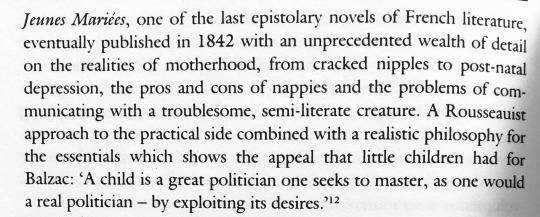
(Balzac is not only the author of hunky gay criminals, he was also derisively called “the novelist of women” for these kind of works. He wrote this novel after staying at his friend Zulma Carraud’s place, who had recently given birth (to a child named Yorick!) and the book is dedicated to George Sand)(and although that last part about the baby politician is pretty funny, this sounds like an interesting read)
#balzac#mémoires des deux jeunes mariées#i haven’t read it but i will#also eugenie grandet: a girl considered ugly by the majority bc she looks somewhat masculine and pockmarked#but balzac remarks she and the rest are too harsh on her and she possesses true beauty that usually goes unappreciated bc its non conforming#to beauty norms#oh this is from robb’s balzc bio
28 notes
·
View notes
Note
so you’ve talked about ‘ a song of ice and fire couples ‘ that are like jonsa but what about couples from classic literature ex: Odysseus and Penelope or Hades and Persephone
I remember a jonsa blog that made a series of classic literature couples that parallel jonsa, but I can't find it now 😭
But I can tell you some couples from literature in general:
Robb and Laurie Blackburn from A Song for Lya by GRRM. Robb describes Laurie as a radiant auburn haired beautiful girl.
Dunk and Tanselle from the Hedge Knight by GRRM.
Beren and Lúthien from Tolkien universe. Beren spies Luthien dancing and singing to herself. More here.
Arwen and Aragorn from The Lord of the Rings by Tolkien.
Wilfred of Ivanhoe and Lady Rowena of Hargottstandstede from IVANHOE by Sir Walter Scott. GRRM also parallels Rebecca with Sansa so we can count Ivanhoe and Rebecca as well.
Simon and Princess Miriamele Erkynalder from Memory, Sorrow and Thorn by Tad Williams.
Hareton Earnshaw and Catherine (Cathy) Linton from Wuthering Heights by Emily Brontë.
La Belle et la Bête (Beauty and the Beast) written by Gabrielle-Suzanne Barbot de Villeneuve. More here.
French version of Beauty and the Beast called 'Le Loup Blanc’ (The White Wolf) that appears in the book Contes Populaires de Lorraine by Emmanuel Cosquin, published in 1887.
Victor Frankenstein and Elizabeth Lavenza from Frankenstein or, The Modern Prometheus by Mary Wollstonecraft (Godwin) Shelley.
Eugénie Grandet and Charles Grandet from Eugénie Grandet by Honoré de Balzac: “Dear Eugenie, a cousin is better than a brother, because he can marry you,” said Charles. More here.
Selim and Zuleika from the Bride of Abydos by Lord Byron.
Vicomte Raoul de Chagny and Christine Daaé from Le Fantôme de l'Opéra ( The Phantom of the Opera) by Gaston Leroux.
I'm sure I'm forgetting a lot here. I will updated when I remember other couples.
56 notes
·
View notes
Text
Everybody would like to know: what are the

?
Of course, they also want to know:

The answer is Les Misérables (sometimes).
While I was looking through the California Digital Newspaper Collection, I made note of the articles which mentioned that Les Misérables was included in the local library.
To begin, in 1885 the Napa Free Library opened in Napa, California, which seems to have been a subscription library furnished with a watercooler “where he who seeks the fountain of knowledge may at the same time slake his thirst tor water.” The library’s board of Trustees selected which books the library would carry, and Les Misérables was among the first 35 selected.
Missouri’s Saint-Louis Republic reported in 1889: “When ‘Les Miserables’ first appeared fifty copies answered the demand, although this is one of the most constantly read books in the library.”
In 1890 the Chicago Tribune quoted a bookseller as saying “I sell a copy of Victor Hugo's ‘Les Miserables’ every ten days regularly.” (I know I said this was about libraries but I just thought that one was interesting).
In 1891, in the town of Springfield, Massachusetts, “of French books, the one most read is Victor Hugo's ‘Les Miserables.’”
Of course it’s not just about what people like to read, it’s also about what is considered to be “good literature” and “worth reading” by those in charge. For example, see this headline from the San Pedro News Piolet in 1919

The high school’s librarian writes:
What do we mean by “better books?” During the last hour I have been considering the subject with a group of young people who happened to be gathered in the school library for study. The discussion was precipitated by the following request from a young girl:
“Please get me something to read that will be good for, me.”
You may think that such a request must be either unusual or insincere, but it is neither. It comes to me constantly in one form or another.
“What is a real good story?”
“I want something beside fiction.”
“Will this book be good enough to make an English report on?”
“What is the difference between Harold Bell Wright’s stories and those of Ralph Connor?” etc., etc.
The debate today drew into its vortex all the occupants of the study hall and, at times, grew a little warm. Several were enthusiastic supporters of Harold Bell Wright, and I tried to explain to them the difference between the sentimental, poorly written novel and the vigorous tale of adventure and romance.
The following list of books is the one the young girl in question actually considered reading. It might be interesting to look through the titles and check those we have read or that we know something about. They can all be found at the public library, and I feel sure that anyone who reads them all will be richly rewarded. To make the acquaintance of a great book is in itself an education.
She chose from the list Les Miserables, the greatest of all novels. If she reads it intelligently it will be an addition to her mental life that she must appreciate and feel as long as she lives and thinks.
Following is the list:
Victory — Joseph Conrad.
Adam Bede — George Eliot.
Fathers and Sons — Turgenev.
Smoke — Turgenev.
The Crime of Sylvester Bonnard — Anatole France.
The Rise of Silas Lapham — William U. Howells.
A Modern Instance — William D. Howells.
Eugenie Grandet — Balzac.
The Iron Woman — Margaret Deland.
Anna Karenina —Tolstoy.
Les Miserables — Victor Hugo.
Jane Eyre—Charlotte Broute [sic].
This is a chapter from real life, and this list is given because it is one actually discussed on this occasion. Other lists as good might be made.
A little out of order for the timeline but that same theme was explored by E.L. Kellogg, the library of the Carnegie library located in San Luis Obispo in 1917 and she had this to say:
But the reading of light, overdrawn, ephemeral fiction only, is a species of intemperance, which not only vitiates the taste, but shuts out a whole world of profit and pleasure among the works of real genius. There is Dickens whose “every page is crowded with jostling life,” to read whom is like taking a walk down some "highway of life where we may come into contact with humanity.” What a pity to go through life unacquainted with the episode of the stolen candle-sticks In Les Miserables, or the splendid Doctor of the Old School in The Bonnie Brier Bush!
In the San Mateo Daily News Leader, in 1912, it was reported that the local library was able to purchase “a handsome four volume edition of Victor Hugo’s Les Miserables with recent gift money.” However reader’s desiring other books not in the library’s collection, they would have to consult the state library or “kindly confer with the librarian. If a number of books are ordered at one time the cost for each applicant will be trifling. Expressage is the only expense.”
Books were not just for solitary reading and individual improvement. As reported in the Hanford Journal in December of 1913:
There are a number of useful books and magazines that are full of the suggestions that will aid any one who plans on entertaining during the holidays. These volumes will be found at the Hanford public library:
Powers' “Dialogues for Little Folks” contains a couple of plays for children, entitled a “Christmas Gift” and “Edna’s Christmas Wishbones.” Knight's “Dramatic Reader for Grammar Grades” gives Dickens' famous story of "Ebenezer Scrooge's Christmas," written in dramatic form, and "Little Cosette” and “Father Christmas” adapted from Victor Hugo’s “Les Miserables.” [Wow I just learned about another adaptation thanks to this.]
Great holiday fun for the whole family.
In 1916 they got a whole lot of new books in Calexico (sorry for the low quality. Les Mis is in there):

In 1911 an advice columnist for the San Francisco Call advised readers that “if you have never read ‘Les Miserables,’ you might attack that this summer.” (Or, of course, if that isn’t your cup of tea, “promise yourself that you will read a dozen good books on hypnotism and clairvoyance and the other manifestations of the unknown world into which science is trying to peek.) (Two years later that same columnist reported that her neighbor was forced to stop reading most magazines due to financial problems, but that that neighbor had said “It has driven us to make more use of our fine library, and the other day we discovered we hadn’t read half the books on our own shelves. So now I’m absorbed in Les Miserables and Jack is reading one of Thackeray‘s that he hadn’t happened to read — both books right off our own bookshelves.”)
And that’s just about it as far as anything remotely interesting goes!
5 notes
·
View notes
Text
If I'd had a man of my own, I'd have followed him . . . down to hell.
Balzac, Eugenie Grandet
0 notes
Text

✦María Valverde
La carga 2016 — part 1, part 2, part 3, part 4, part 5, part 6, part 7, part 8
Libertador 2013 — part 1, part 2, part 3, part 4
Los Borgia 2006 — part 1, part 2, part 3, part 4, part 5, part 6, part 7, part 8, part 9
Melissa P. 2005 — part 1, part 2, part 3, part 4, part 5, part 6, part 7, part 8
✦Paz Vega
Carmen 2003 — under development
Los Borgia 2006 — part 1, part 2, part 3
One Thousand and One Nights 2012 — under development
✦Frédéric Noaille
The Monk 2011 — under development
✦Catherine Mouchet
The Monk 2011 — under development
✦Déborah François
The Monk 2011 — under development
✦Joséphine Japy
Eugenie Grandet 2021— under development
The Monk 2011 — under development
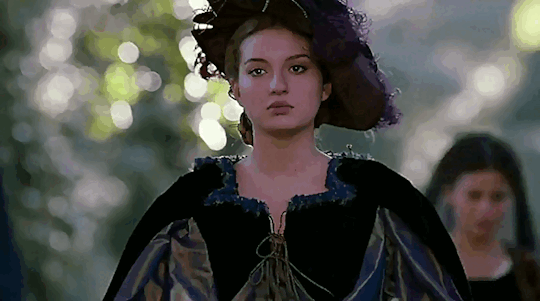
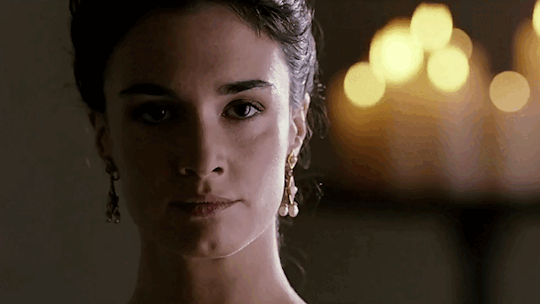
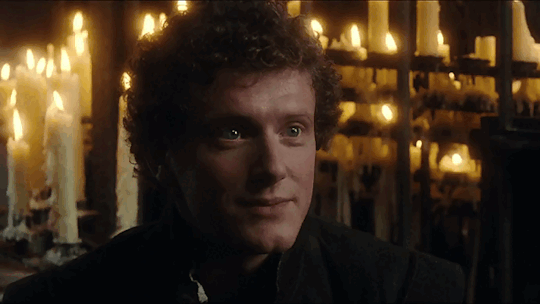
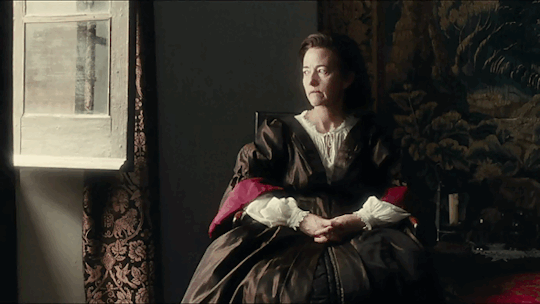

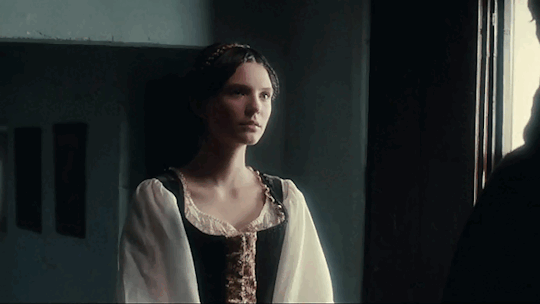

1 note
·
View note
Text
Part 181: Saturday, 25th December 1965, 10.25p.m.
.A very brief entry, want to see second instalment of Eugenie Grandet on TV at 10.35. Pain in left shoulder-blade yesterday, quite a definite pain. Gone to-day (except perhaps for a very slight twinge if I think about it, but I didn’t have to think about yesterday’s pain). It’s the schmallippiger Antlitz des Lebens [allusion to Thomas Mann’s “Royal Highness”. The prince’s educator, Doctor…
View On WordPress
0 notes
Text
Aspettando l'Autunno Book Tag
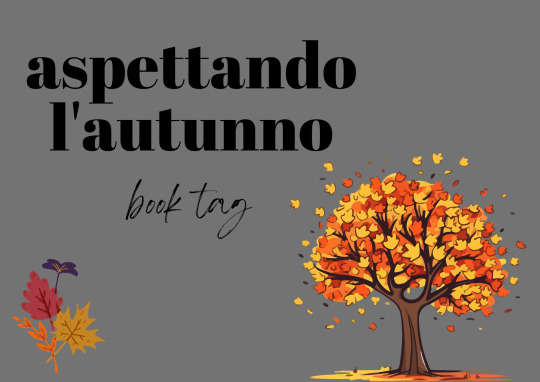
Ciao a tutti!! Questa settimana vi propongo un nuovo book tag trovato sul Book Tube. Oggi parliamo di autunno, in particolare vi mostro libri già letti e libri che vorrei leggere con vibes autunnali. Scrivetemi pure i vostri titoli autunnali!! Buona lettura!!
Pioggia: un libro che leggeresti volentieri cullato dal ticchettio della pioggia sul tetto.

"Il Sospetto" di Friedrich Durrenmatt è un romanzo breve che lessi lo scorso anno, proprio nel periodo autunnale e ricordo di averlo apprezzato moltissimo anche per le vibes tetre che pone al lettore. Perfetto da leggere in una giornata piovosa.
Foliage: un libro dalle diverse sfaccettature.

Passiamo, ora, alla letteratura americana del novecento con "Giovanni's Room", o "La Stanza di Giovanni", di James Baldwin. Questo romanzo narra di una relazione alquanto complicata tra due ragazzi a Parigi, ma questo è solo il punto di partenza che l'autore usa per poter parlare di ben altro: la società dell'epoca, la libertà personale, la solitudine.
Autunno, Dove Sei?: nomina quattro libri che non vedi l’ora di leggere quando arriverà la stagione.
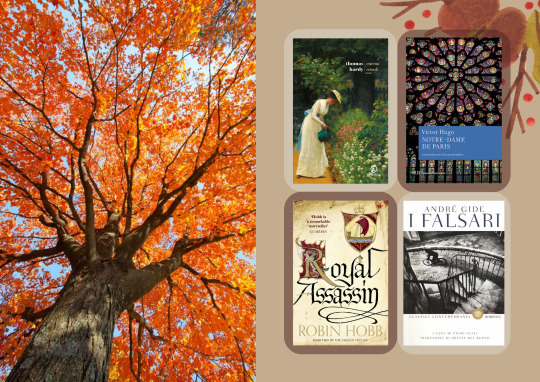
Sono molto curiosa di proseguire il mio percorso di lettura degli autori Thomas Hardy e Victor Hugo con, rispettivamente, "Estremi Rimedi" e "Notre-dame de Paris". Parlando sempre di classici, vorrei approcciarmi ad André Gide con la sua ultima opera "I Falsari". Infine, cambiando completamente genere, vorrei proseguire con la trilogia Farseer di Robin Hobb, leggendo il secondo volume "Royal Assassin".
Tè e Tisana: un libro che scalda il cuore.
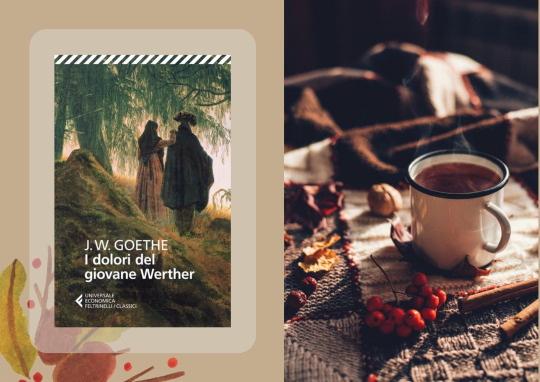
"I Dolori del Giovane Werther" di Goethe può sembrare un libro triste, e lo è, ma nella sua tristezza porta molto calore. Questo è un romanzo estremamente interiore, che parla di solitudine, di amore, di morte. Non ci si sente soli, ci si sente capiti e a propria volta si capisce.
Castagne: un libro che all’inizio ci sembrava un po’ spinoso, difficile ma che poi si è rivelato coinvolgente.
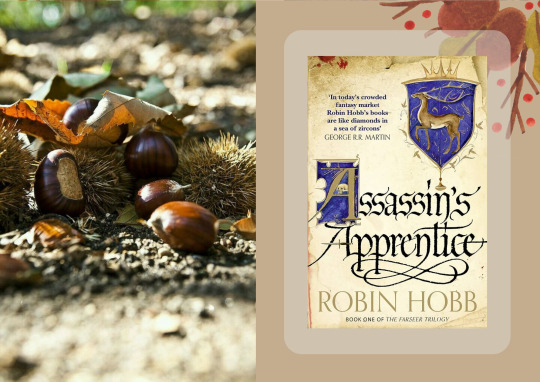
"Assassin's Apprentice" di Robin Hobb è il primo volume della trilogia Farseer (che apre una saga infinita); per me questa è stata una lettura alquanto impegnativa, in particolar modo per l'inglese che non ho trovato così facile come mi aspettavo. Una volta, però, abituatami allo stile, la lettura è diventata molto più scorrevole. Per quanto riguarda la trama, invece, questa mi ha catturato sin da subito, un po' intricata, ma decisamente accattivante.
Candele Profumate: un libro dalla forte atmosfera autunnale.
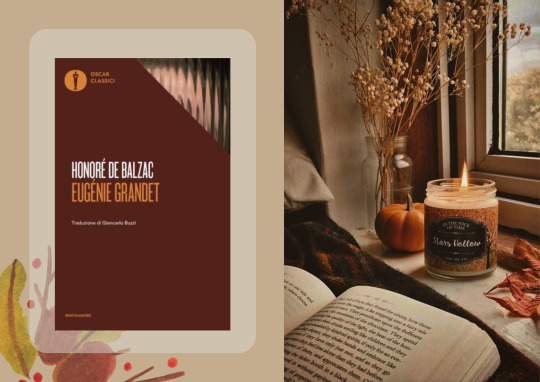
Nonostante "Eugenie Grandet" di Balzac sia ambientato in più anni e, quindi, in più stagioni, mi ha trasmesso molte vibes autunnali. Che dire di questo romanzo, si incentra sulla figura femminile di Eugenie Grandet, personaggio che non segue perfettamente i canoni di quell'epoca e, di conseguenza, molto interessante.
Zucca: un mattone da leggere in autunno.
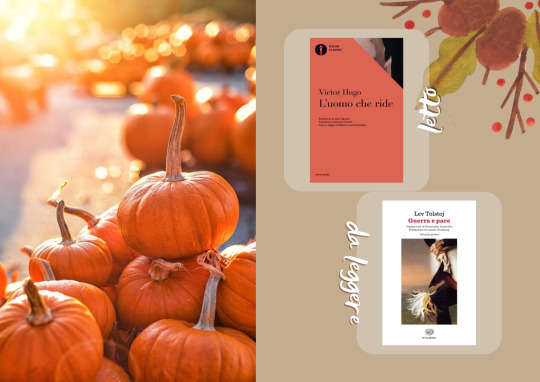
Qui, vi cito due libri, uno letto e uno da leggere. "L'Uomo che Ride" di Victor Hugo è un romanzo gotico estremamente drammatico, ma con un messaggio potentissimo e perfetto per l'autunno. Invece, questo autunno mi piacerebbe affrontare la sfida di "Guerra e Pace" di Tolstoj, ma vedremo in seguito come va...
Halloween: un libro che vuoi leggere quest’anno per halloween.
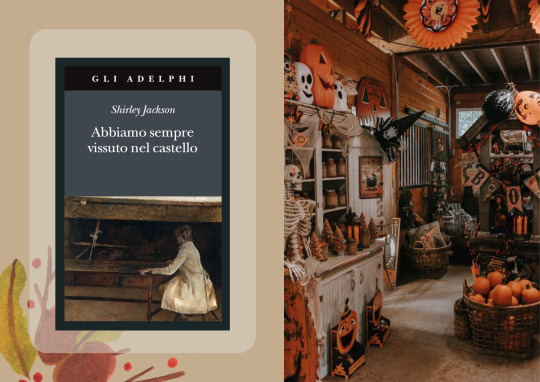
Non ho mai letto romanzi horror, ma quest'anno mi voglio buttare, perciò mi sono già preparata in libreria "Abbiamo Sempre Vissuto nel Castello" di Shirley Jackson, autrice ben conosciuta del novecento. Non so nulla di questo romanzo, come d'altronde di ogni romanzo che devo ancora leggere, e non so minimamente cosa aspettarmi.
Giacca: libro che hai da un po’ in libreria e che aspetti di leggere proprio in autunno.

È da Natale 2022 che attendo il suo momento e, per me, il suo momento è l'autunno. Sto parlando di "Spiriti e Creature del Giappone" illustrato da Benjamin Lacombe. Una raccolta di racconti giapponesi su creature mistiche, cosa c'è di meglio per una lettura autunnale!!
#book tag#booktag#book#books#libri#libro#tag#letteratura#literature#consigli di lettura#suggestions#tbr#to be read#reading
1 note
·
View note
Text
Gâlip Abi, bir şey değişmedi, her şey bildiğin gibi…
Sensiz geçen yirmi dört yılda bizim mahallede değişen bir şey yok Gâlip Abi. Ağızlarda bir aşufte sakızı gibi çiğneniyor hainlik yine. Hani Mamak Cezâevi'nin yollarında tüketmiştin ya o yılları, hani üç kuruş için el açardın ya evlâtların için, hani tahliyeler gerçekleştikten sonraki günlerdi, Kızılay'daki o avukat yazıhânesine alınmamıştın da kapıya dikilen bir kaç genç tarafından "Yasak" denmişti sana. O ân bile önemsememiştin sana yapılanı. Döndün ve gittin ya hani. Değişen bir şey yok Gâlip Abi bizim mahallede. Yine genç çocuklar toplantı basıyor, yine genç çocuklar yasak koyuyorlar büyüklerinin yerine. Büyükleri gelmiyor oralara, genç çocukları yolluyorlar. O genç çocuklar böylesi çirkin hâtıraların sahibi oluyorlar genç yaşlarında. Hırs ve kin emziriliyor yine çocuklara. Ağızlarından öfke kusuyorlar tanımadıkları, bir araya hiç gelmedikleri, beş dakika otursalar çok sevecekleri insanlara parmak sallıyorlar, yumruk ve tekme sallıyorlar. Bir tarafta ocaklarda kor kesmiş, pevâneler gibi ateşlere atılmış evlâtların, diğer tarafta sırtını emniyetli duvarlara dayamış, gölgeliklere alışmışların sahneye fırlattığı gencecik yumrukları sıkılmış çocuklar…
Her şey bildiğin gibi Gâlip Abi, sensiz geçen yirmi dört senede bizim mahallede değişen bir şey yok anlayacağın.
Ben mi?
Ben hâlâ bana verdiğin o 'Eugenie Grandet' isimli Balzac romanındayım, dönüyor, dönüyor okuyorum, bitiremedim hâlâ. Biliyorsun biraz tembelim...
Hani anlatmıştın ya bir akşam, Balzac sarayda bir toplantıya davetlidir. Masada önemli meseleler konuşuluyordur, cumhuriyet, devlet, özgürlükler ve ilââhir. Balzac susuyor, hiç konuşmuyordur. Saatler geçer harâretli tartışmalarla ve Balzac âniden elini vurur masaya ve "Beyler, bakıyorum da saatlerdir havâiyattan bahsediyorsunuz, söyleyin bana Eugenie Grande kiminle evlenecek. Efendiler gerçeğe dönelim?" der. Balzac toplantıda geçen o kadar saat boyunca romanının sonuna yaklaşmışken romanının kahramanı ve sadâkat timsâli Eugenie'yi kiminle evlendireceğini düşünmektedir. Ve terk eder toplantıyı Balzac evine döner.
İşte ben de aynı durumdayım. Bizi, yani senin Eugenie Grandet'lerini düşünüyorum Gâlip Abi…
Hepsi bir yerlere savrulmuş. Kimisi köşesine çekilmiş, kimi hâlâ dimdik ve bir rüyânın hakikat olma ihtimâline âşık, kimi tüm iddialarını ve mâzisini unutmuş gelen ağam giden paşam diyor, kimi aynı ilk günlerinden beri bildiğin gibi gençleri kışkırtmakta hesaplarını bozanların üzerine salmakta...
Biz senin de her gece gördüğün o rüyânın gerçek olma ihtimâline aşığız hâlâ. Hani o 'Demirdağ'ı eriten ve 'Kutlu Kağanlık'ı kuran Börteçine'nin rüyâlarının, hani o beyaz atının kuyruğunu düğümleyip, yalınkılıç düşman üzerine yürüyen Alparslan'nın rüyâlarının, hani o Çeğen Tepesi'nde mitralyöz ateşine karşı yalnızca kılıcıyla hücum eden şehid-i güzînimiz Enver Paşa'nın rüyâlarının, hani o "Memleketin ellide biri değil, her tarafı tahrîb edilse, her tarafı ateşler içinde bırakılsa, biz bu toprakların üstünde bir tepeye çıkacağız ve oradan savunma ile meşgul olacağız" diyen Mustafa Kemâl'in rüyâlarının, hani o "Bölünme kabul etmez, kutsal bir bütün halinde Büyük Türkiye'yi yeniden inşa edeceğiz" diyen Alparslan Türkeş'in rüyalarının, hani o "Ben Türk'üm Türk esir olmaz, ben Türk'üm Türk devletsiz olmaz, ben Türk'üm Türk bayraksız olmaz, ben Türk'üm Türk ezansız olmaz, ben Türk'üm Türk hürriyetsiz olmaz" diyen Muhsin Yazıcıoğlu'nun rüyâlarının gerçek olma ihtimâline aşığız hâlâ.
Endişe etme Gâlip Abi rahat uyu, biz bir tepenin üzerindeyiz ve ateşlere atsalar, çarmıhlara gerseler yine de cihana değişmeyeceğiz şu öksüz Türklüğümüzü ve ülkücülüğümüzü…
Vefatının yirmi dördüncü yılında Gâlip Ağabey'e ve evvel giden cümle ahbâba selâm ve rahmet olsun…
0 notes
Text

gorgeous edition of Eugénie Grandet❤️
3 notes
·
View notes
Text
"Fizik olarak, Grandet, kısaca boylu, tıknaz, dört köşe biriydi, bacakları kalın, dizleri ağaç gövdeleri gibi güçlü, omuzlarıysa genişti. Yuvarlak, güneş yanığı, çiçek bozuğu bir yüzü vardı. Çenesi düz, dudakları kıvrıntısız, dişleri de beyazdı. Gözlerinin durgun, ölü gibi bakışı kabaca kertenkele bakışı denilen türdendi. Derin çizgili alnı, yüzden insan doğasını keşfeden bir uzman için hiç de anlamsız sayılmayacak biçimde çıkıntılıydı. Sarımsı saçları artık kırlaşmaktaydı. Monsieur Grandet hakkında şaka yapmanın ne ciddi bir sorun olduğunun farkına varmamış birtakım gençlere göre de bu saçlar altın ve gümüş gibiydi. Burnunun ucu kalındı ve üzerinde damarlı bir yumru vardı, her nedense halk arasında bu yumrunun kötülük dolu olduğu söylenirdi. Yüzünden, tehlikeli bir kurnazlık, hesaplı bir doğruluk, gün be gün, duygularını para biriktirmek ve dünyada kendisine bir şey ifade eden tek varlık olan kızı, tek varisi Eugelie üzerinde yoğunlaştıran bir adamın bencilliği okunuyordu. Halinde, davranışında, duruşunda, tavrında, kendisiyle ilgili her şeyde; giriştiği hiçbir işten başarısız çıkmayan birinin kendine güveni vardı. Görünürde uysal ve yumuşak konuşan biriydi ama Monsieur Grandet'nin demir gibi bir ruh yapısı vardı.
Her zaman aynı modaya göre giyinirdi: Onu bugün görmek 1791'de görmek gibiydi. Hantal pabuçlarının deri bağları vardı. Yaz kış kalın yün çoraplar, gümüş tokalı kaba, kestane rengi çuha pantolon, kadife çizgili ve boğazına kadar düğmeli, uzun, bol kestane rengi bir ceket, siyah bir boyunbağı ve bir Cusker şapkası giyerdi. Eldivenleri bir jandarmamın kullanacağı kadar sağlamdı, hemen hemen iki yıldır bunları giymekteydi ve temiz tutmak için çıkardığı zaman dikkatle hep aynı noktaya, şapkasının yanıbaşına koymak adetindeydi. Hepsi bu kadar. Monsieur Grandet hakkında Sauma'da bundan fazla bir şey bilinmezdi"
Honore de Balzac | Eugenie Grandet
#honore de balzac#Eugenie Grandet#yazar#kitap#edebiyat#kitapalıntıları#kitapalıntısı#cumblus kitap#keşfet
14 notes
·
View notes
Text
Trying to find that Jules Janin review of Mme Putiphar I found instead an article in Borel’s petit-journal Le Satan defending Balzac against Janin’s attacks. Apparently janin was targeting him specifically since Balzac had written a Monograph on Parisian Press (which Le Satan calls a tasteless but truthful, courageous and well researched satire)
#the satan writer also likes eugenie grandet and la recherche de l’absolu#i once read balzac was decent to borel helping him fight an abusive editor#as a conclusion the article regrets balzac’s thirst for janin’s status but claims janin would never have balzac’s talent
4 notes
·
View notes
Photo

—No, probablemente no soy lo bastante ingenioso como para burlarme de los demás, y ese defecto me perjudica mucho. En París se asesina aun hombre diciendo: «Tiene buen corazón». (Eugenie Grandet) #perlachaisecemetary #dreamcometrue #honoredebalzac #eugeniegrandet #parisfrance #france🇫🇷 #balzac https://www.instagram.com/p/Cht9oxajzMN/?igshid=NGJjMDIxMWI=
1 note
·
View note
Photo

😢 Come l’avarizia distrugge tutto. 👉🏻 #eugeniegrandet In una malinconia casa a Saumur vivono i signori Grandet con la figlia Eugenie. Il signor Grandet ha costruito un vero e proprio patrimonio grazie alla sua furbizia ma soprattutto all’avarizia. Da agiato bottegaio è diventato sindaco e poi grande proprietario terriero, ha vigneti, cascine, pure un’abbazia e un castello, ha da parte milioni ma obbliga la famiglia a vivere con il minimo indispensabile. Si arrabbia se usano troppo lo zucchero! Ora tutti si domandano: a chi andrà in sposa Eugenie? Le varie fazioni che aspirano alla sua mano rimangono a bocca aperta quando il cugino di lei si presenta all’improvviso. Lui non la sa ma suo padre si è suicidato per via dei debiti. Prima però ha chiesto al fratello, Grandet, di prendersi cura di lui. Purtroppo Grandet è un grande avaro … 👍🏻 Eugenie è ispirata alla donna amata da #honoredebalzac donna che gli ha dato anche una figlia. 👍🏻 Il libro inizia con una dettagliata descrizione dell’ambientazione. Ne dà una visione ampia, descrivendo anche gli abitanti e le loro abitudini. 👍🏻 L’autore descrive molto bene i suoi personaggi, parla del loro aspetto, del carattere, di come vengono visti dagli altri, cosa pensano di loro. 👍🏻 Ho adorato Nanon, la domestica leale e fedelissima di Grandet. È l’unica che se lo rigira come vuole. 👎🏻 Eugenie è abbastanza ingenua, vive un po’ nell’ignoranza (colpa del padre). Non sa nemmeno cos’è un milione. 👍🏻 Lo scrittore dona ai suoi personaggi femminili una fedeltà e lealtà smisurate. Lascia agli uomini le caratteristiche più meschine. 👍🏻 Tema principale è proprio l’avarizia che indurisce i cuori e fa commettere follie agli uomini. Nel libro si legge di come il denaro, l’oro, la fame di possedere sempre di più, corrodono l’animo delle persone, a discapito delle vite altrui. ❓L’ultimo classico che avete letto? #classicbooks #libriclassici #luglioneilibri #antrodilibri #ilbellodileggereinestate #stayconape #bibliophilelegentibus #amicandito #ilclubdeilettorifelici #storiebookite1 https://www.instagram.com/p/CgWaf3AsQjX/?igshid=NGJjMDIxMWI=
#eugeniegrandet#honoredebalzac#classicbooks#libriclassici#luglioneilibri#antrodilibri#ilbellodileggereinestate#stayconape#bibliophilelegentibus#amicandito#ilclubdeilettorifelici#storiebookite1
1 note
·
View note
Text
A thousand confused thoughts came to birth in her mind and grew there, as the sunbeams grew without along the wall… Her thoughts were all in keeping with the details of this strange landscape, and the harmonies of her heart blended with the harmonies of nature. When the sun reached an angle of the wall where the “Venus-hair” of southern climes drooped its thick leaves, lit with the changing colors of a pigeon’s breast, celestial rays of hope illumined the future to her eyes, and thenceforth she loved to gaze upon that piece of wall, on its pale flowers, its blue harebells, its wilting herbage, with which she mingled memories as tender as those of childhood. The noise made by each leaf as it fell from its twig in the void of that echoing court gave answer to the secret questionings of the young girl.
Balzac, Eugenie Grandet
0 notes